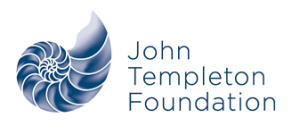Wednesday 5th June 2024, 2.30pm – 4.00pm (London BST)
Dr Tenelle Porter (Rowan University)
Title: Investigating the Effect of Teachers’ Intellectual Humility on Students’ Interest and Learning
Abstract: The expression of intellectual humility – publicly admitting confusion, ignorance, and mistakes – can benefit individuals, but can it also benefit others? Five studies tested the hypothesis that teachers’ expressions of intellectual humility would boost U.S. students’ motivation and engagement in learning. In two pilot studies (one preregistered, combined N = 231), adults (50% women; 58% White, 25% Black) and adolescents (48% girls; 53% White, 33% Hispanic) anticipated being most comfortable expressing intellectual humility and interested in a hypothetical math class when a teacher’s class description modeled expression of intellectual humility relative to when the teacher recommended that students show intellectual humility or mentioned nothing about intellectual humility. Two fully powered, preregistered experiments with undergraduates (both 50% women; Study 3: 58% Asian, 17% Hispanic or Latinx, 16% White; Study 4: 53% White, 16% Asian, 16% Hispanic or Latinx; combined N = 767) replicated these effects and identified three mechanisms: an increase in sense of acceptance with the teacher, an increase in the sense of belonging with peers, and a decrease in the belief that failure hurts learning. Study 5 (preregistered) revealed that high school students (51% girls; 92% White; N = 411) were more motivated and engaged in their classes when they perceived their teachers to be more intellectually humble, with the largest benefits for young women. Longitudinally, teachers’ modeling intellectual humility predicted changes in students’ grades via willingness to express intellectual humility. Teachers’ intellectual humility may benefit students’ interest, engagement, and learning in school.







